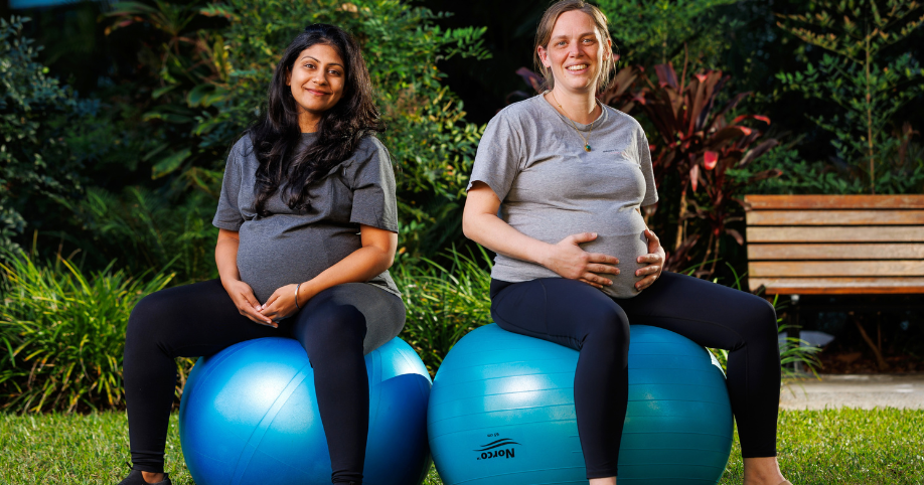
A new Australian study has revealed pregnant women who sit for excessive periods could be affecting the health of their placenta – and potentially their baby.
The Mater Research study found that sitting for more than eight hours a day during pregnancy was associated with smaller and stiffer placentas, with a potentially compensatory decrease in blood flow resistance in the umbilical cord.
The placenta develops inside the uterus during pregnancy and passes oxygen, antibodies and nutrients from the mother’s blood to her baby.
More than 200 women who gave birth at Brisbane’s Mater Mothers’ Hospital took part in the study, which was led by physiology researcher Jade Kubler.
“Our findings showed that sitting for more than eight hours a day during pregnancy was linked to greater placental tissue stiffness, altered blood flow resistance in the umbilical artery and a lower placental weight at term,” Ms Kubler said.
“These associations were found irrespective of what other physical activity was performed by each woman.
“These findings highlight the importance of limiting sedentary behaviour during pregnancy for placental health, because a well-functioning placenta plays a critical role in supporting the growing fetus.
“We know mothers can get uncomfortable and tired towards the end of their pregnancy, or choose to work later in their pregnancy.
“When this is the case, these findings show that taking regular breaks to get up and move around the office or home are necessary to ensure a well-functioning placenta.”
Ms Kubler said low-functioning and under-developed placentas can affect the growth and wellbeing of babies and possibly lead to complications in pregnancy or birth.
Participants were all enrolled in Mater Research’s Queensland Family Cohort Study and were monitored throughout their pregnancy.
The study – Maternal physical activity and sitting time and its association with placental morphology and blood flow during gestation – has been published in the Journal of Science and Medicine in Sport.
Ms Kubler said the study investigated different volumes of exercise during pregnancy as well as sitting times and the effect they had on the placenta.
Although antenatal exercise has well-established beneficial effects for women and babies, she said there was no association between overall physical activity and placental health in this cohort of women.
“Even if a pregnant woman is physically active, she could still find herself sitting for an excessive amount of time each day, whether that be at work or at home,” Ms Kubler said.
“Reducing the amount of time pregnant mothers sit is what appears to benefit the placenta in many ways.”
First-time mum Suruthi Nathan is eight months’ pregnant and tries to limit the time she spends sitting down throughout the day.
The South Brisbane artist is married to a GP and said she appreciates the importance of being active throughout pregnancy.
The 32-year-old is attending Physiotherapy for Pregnancy, Birth and Beyond antenatal classes at Mater Mothers’ Hospital, which include sessions with physiotherapists.
She said the classes covered massage and breath awareness, gentle exercises, different comfort positions and relaxation techniques.
“I am surrounded by a lot of medical professionals who have stressed the importance of movement throughout pregnancy to me,” Ms Nathan said.
“Even if I sit down for an hour and then get up to get a glass of water, I can feel stiffness in and around my back – my pregnancy doesn’t allow me to sit for long periods.
“I make sure to switch positions, take a mini walk, do my stretches and keep moving.”


